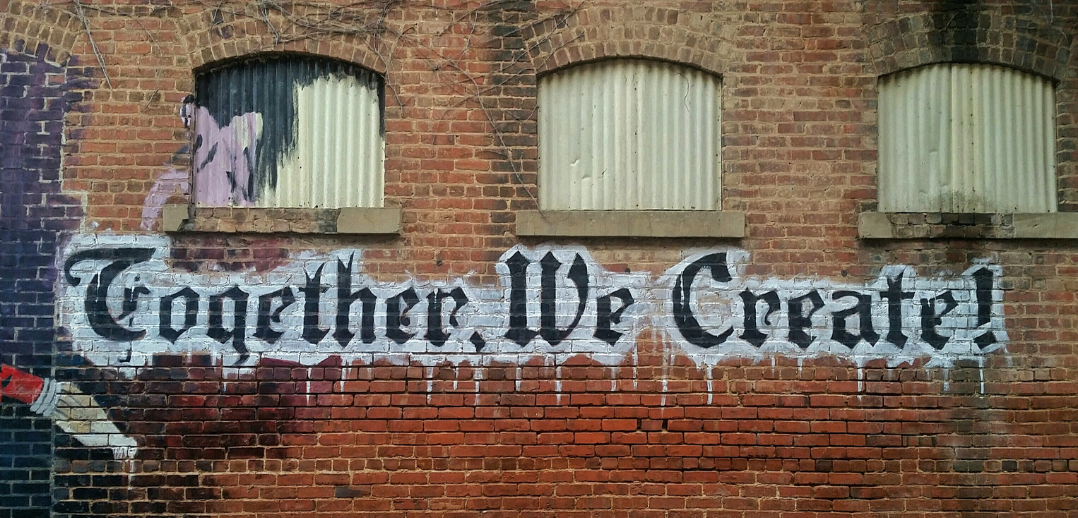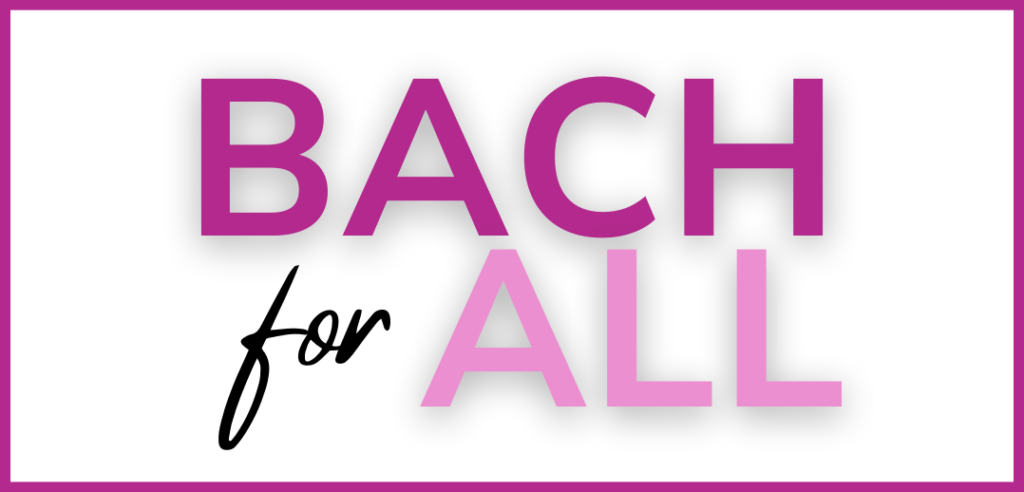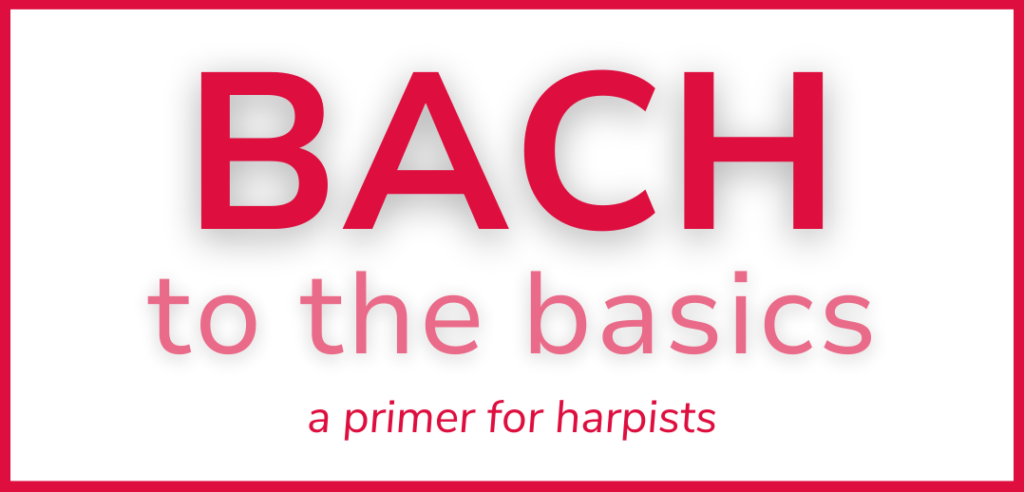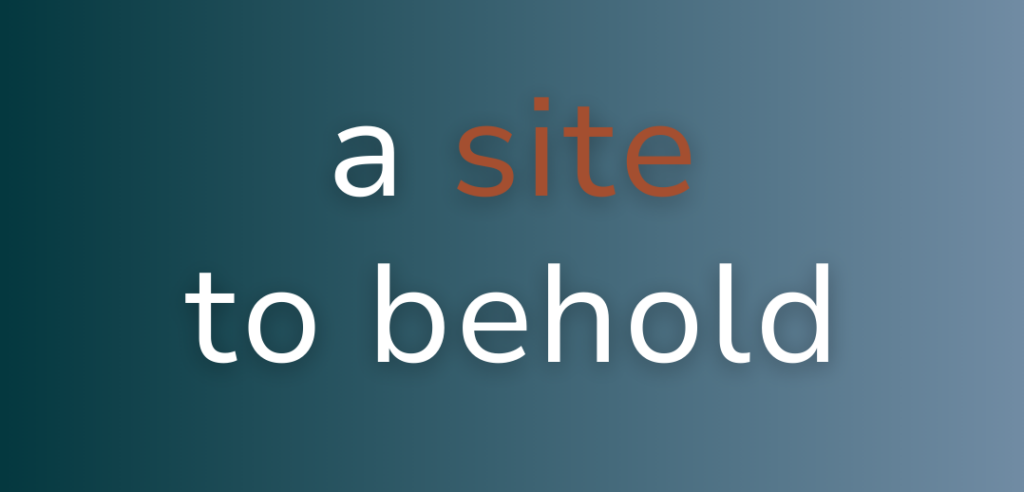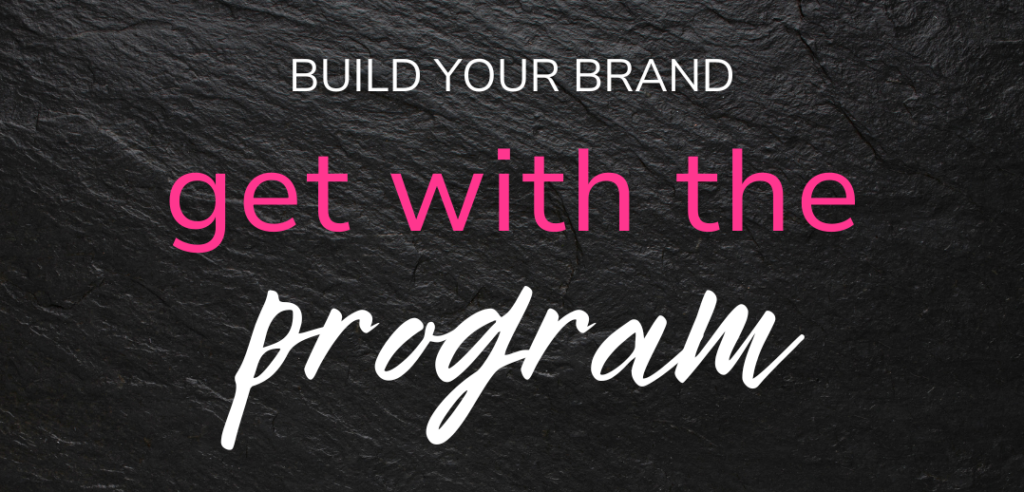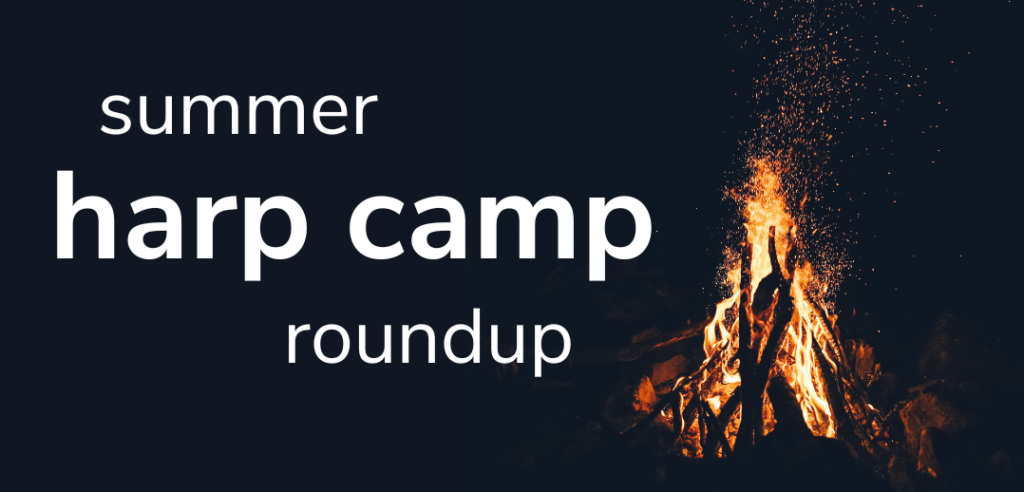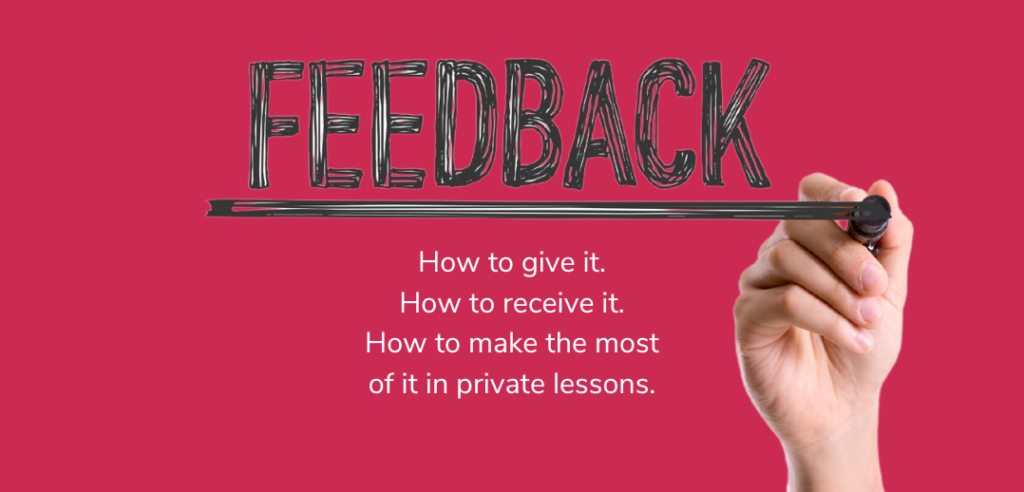Picture the scene: an eager composer comes up to you with their new masterpiece for harp. Despite this being the composer’s first foray into writing for the instrument, they poured their heart and soul into it. However, when you look through the part, you find sections that are awkward, notes that have you using your pinky, double sharps and flats everywhere, and passages that are downright unplayable. What on earth is a harpist to do? How do you address potential issues with a composer who has written something that may not be particularly idiomatic? It starts with the harpist-composer relationship—a healthy give and take being the key to fostering a fruitful collaboration.
Research is your friend
Where to begin? I have developed a specific way of introducing composers to the harp if they haven’t written for our instrument or have limited experience composing for it. I have honed this approach over the last decade I’ve spent working through academic degrees, talking with friends, teaching orchestration classes and workshops, and working with professionals.
The first step is to get a copy of Stanley Chaloupka’s book Harp Scoring. You probably have seen it before. It’s a small, bright yellow harp composition bible and can be purchased pretty inexpensively from your favorite retail outlet. I suggest this book to every composer, as a jumping off point to start them on their journey. A newer resource is Yolanda Kondonassis’ The Composer’s Guide to Writing Well for the Modern Harp, recommended to me by Midwest harpist and composer Amy Nam. I’m definitely going to recommend it to composers. It’s quite good and does several things other books don’t do (like provide extensive examples of idiomatic patterns, chord shapes that are good and bad ideas, etc). Another resource is the website harpnotation.com. Along with these resources, it’s important to look at appropriate repertoire that you know works on the instrument and be able to explain to a composer why it works.

London-based harpist and composer Alexander Thomas says, “My advice to budding harp composers—research, research, research. Listen and watch. If you don’t know where to start…research.” Thomas goes on to point out, “The crux of the difficulty that composers face is that a lot of the music featuring harp that composers are immediately going to be exposed to (i.e. orchestral or chamber works) is written in a way that doesn’t always adhere to modern, textbook ‘good writing.’ How many orchestral parts do we ourselves edit, for example? Lots. Also, in the modern age of logic and electronic composition it’s not assumed that composers need the player’s consent to sign off the music. The computer will effortlessly demonstrate music that is physically impossible for a real human instrumentalist to play.”
Adopt a harpist
Once you’ve done your research, you’re ready for step two—start an “Adopt a Harpist” program. If I am living in the same area as a composer, I like to give composers not one, but two harp lessons. The first is similar to how I’d give any first lesson—explaining the mechanics of the instrument, showing ranges, explaining technique, and most importantly sitting the composer behind the instrument so that they can experience the instrument for themselves. Show them which shoulder the harp goes on, show the span of your hand compared to their hands (especially if they have larger hands than you), teach them how the pedals or levers work, and challenge them to change them as quickly as possible so they see how much work and time is exerted changing them. At the end of this session, I always send the composer away with a list of “good” writing, as well as a couple of “bad” examples. (Flying Dutchman, I’m looking at you!) Giving composers the opportunity to experience the physical demands of the instrument helps drive home the point that the harp is a unique beast.

This sentiment was echoed by Oregon-based composer Evan Henry. “When you’re first starting off, there is a very strong temptation to treat the [pedal harp] like a piano,” he says. “I think that’s a really easy mistake to make, not just because harpists use four fingers instead of five, but because the registration works totally differently. The middle-lower register of the piano—that range from middle C down about two octaves—tends to sound pretty clear, whereas on the harp the notes are more likely to bleed together and it can easily become very muddy. I regularly bring things to a harpist to hear them, because I’m still never quite sure if something is going to work in that register or not. If you don’t already have a friend who is a harpist, you should go get one because it really helps to be able to hear things. I guess that’s the axiom of learning to write for any instrument: you need to be able to play it (or at least have somebody nearby who can) in order to write for it.”
After my adopted composer’s first draft is complete, I give them their second harp lesson. Again, I will sit them behind the instrument and show them why something doesn’t work. Take, for example, fast, repetitive notes in the bass of the harp akin to the piano part of Schubert’s Erlkonig. Not only is that a repetitive strain injury waiting to happen, but it just won’t sound particularly good given the register. Or perhaps they’ve asked you to change 100 pedals in the space of two beats. By sitting the composer behind the instrument, they gain a hands-on perspective. Having the composer change the pedals or having them create a certain extended technique with the sound they want illustrates why something won’t work. By the same token, if the composer can move the pedals or create the sound that you’ve said is impossible, maybe give it a go. An example of this was with composer and conductor Duncan Ward, who I collaborated with when we were both students in the National Youth Orchestra of Great Britain. What made this youth orchestra unique was the addition of a composer’s course for young writers. These young composers had been challenged to write harp ensemble pieces, and Ward brought in a work with a particular style of knock notated in the part. Our instructor claimed that the technique couldn’t be done, but allowed Ward to see if he could recreate the sound. Lo and behold he did, and the knock stayed in the piece. Moral of this story? Be open minded, so long as it won’t damage either our bodies or our instruments.

Arizona composer Kincaid Rabb offers some advice to his peers. “Yield to the performer. They’re right. Don’t make your performers do uncomfortable things, and less is more when it comes to writing for harp, especially in solo or exposed contexts.” This is comforting for harpists to hear. By a similar token, British composer Paul Patterson says communication between composer and performer can go a long way. “My harp pieces are quite challenging, and players often need advice about the overall effect I’m trying to achieve,” he says. “So in rehearsals, explaining the sound or color or rhythmic direction is very helpful, and receiving thoughts from the players will improve the practical element for the harpist.”
The collaborative mindset

Collaboration is a two-way street. Everyone is different, and I’ve found that my preference of having a truly collaborative relationship does not work for everyone. Both parties must be upfront about their expectations for their working relationship at the beginning of the process so that there are no surprises (a contract is also useful for this, which we’ll discuss later). Eira Lynn Jones, head of harp at the Royal Northern College of Music, s notes that the amount of collaboration varies depending on the situation. “It can be empowering, for both parties, to let the composer have free rein,” she says. “On other occasions, I want to be involved, and the close dialogue can lead in directions that neither of us would have thought of. So being open is essential.” Yolanda Kondonassis, who literally wrote the book on harpist-composer collaborations (The Composer’s Guide to Writing Well for the Modern Harp, 2019,) echoes these points, giving thought to what happens to the piece after the premiere. “How collaborative should the process be? In a word—very,” she says. “If a composer is working directly with a specific artist, it is so important to get to know the artist and their particular strengths and to utilize every strong suit they have. That first premiere outing is critical in launching a new work, and if the delivery really makes an impact, everybody wins.”

The common goal of harpist and composer is important to keep in mind, says Rochester, New York-based composer Michael Frazier. “Keeping in constant communication with a commissioner is crucial to a smooth and understanding commissioning process. As with anything else, communication helps both parties realize their goal so that both end up satisfied with the result. For me, it would feel weird to not be regularly communicating with a commissioner.” An experienced composer for harp, Sean William Calhoun says the collaboration process varies, depending on the performer and also on how ambitious or unconventional the piece is technically. “If it’s a pretty straightforward piece, communication may just be occasional progress updates and after it’s delivered, answering questions if they come up,” he says. “If it’s more unconventional or demanding, that requires frequent checks on notation or playability.”
Not everyone is as collaborative though, and everyone has different ways of working. Evan Henry says his comfort level for communication depends on how fast he’s working on a project. “Sometimes I spend two months writing something, during which time I won’t say anything. Other times I send it out bit by bit for feedback, or I might send out a big chunk or movement every week for a month and then retreat under my rock to finish the last 20 minutes for a year. Truthfully, I have no consistent answer to this question. Normally it’s after I ‘finish’ a piece that I begin to speak extensively with the performers about it, and even then it’s important to leave some time for them to work on the piece alone. After that period we can both begin to make changes as necessary, and that might even be after an initial performance. Composition, for me, is a bit like the foundation of a house. The composer lays the foundation, then the musical collaboration with the performer becomes the house that everybody sees.”
Who to work with
Composition collaborations can come about in many ways. Maybe you have a project in mind and are looking for a composer. How do you find the right fit? “I will choose composers whose music I’ve been inspired by or whom I’ve already worked with,” says Eira Lynn Jones. “I need to have complete trust in them if I am commissioning. I asked [harpist and composer] Esther Swift to write a piece for solo harp for me to premiere at the Edinburgh International Harp Festival. It ended up being a tribute to the Scottish harpist Helen MacLeod: a former student, friend, and duo partner who sadly died in a car accident just as we started the project. Esther knew and admired Helen and managed to capture Helen’s soul and zest for life.”

Fellow harpist-composers Amy Nam and Alexander Thomas add that they are often gratified, honored, and excited to work with harpists on a project. Nam notes, “Having anyone show an interest in my work is gratifying, but especially other harpists, because I very much want to contribute meaningful work to the harp repertoire. And, when other harpists play my works, it means they find value in them—they aren’t doing it out of ‘pity’ because I couldn’t find a harpist.” Thomas adds, “It is the biggest joy when your music to speaks to other people—the fact that they want to explore it is also reassuring that it makes sense and says something meaningful. As a creator, it is probably the ultimate thrill to hear something you’ve written take on a life of its own and be interpreted in performance. You set it free and can finally observe it rather than being stuck inside it.”

Harpist and composer Hannah Lash, who teaches at Yale, was also enthusiastic about other harpists playing her works, though she did add, “Of course I have very decisive ideas about how my music should be played, so I like to have a recording of myself available for people. I believe very fully in the poetry of music…the dance of it, the obligation of the performer to understand beyond the page’s surface how the piece works, and to bring all their musicality and imagination to bear. I think oftentimes when musicians play for living composers, the impulse is to be almost slavishly literal to what they see notated. You would never want to play Bach or Schumann that way.”
Interestingly, I am always more nervous before a first meeting with a harpist-composer than I am with a composer who doesn’t play the harp. But they truly do understand our instrument, even if something is tricky, right? Not so. They too can fall into traps when trying to express what is in their mind. Amy Nam says of her concerto Somewhere to Elsewhere, “In the past, I’ve pushed myself to do the things I wanted compositionally despite their being problematic for the instrument. For instance, the cadenza of Somewhere to Elsewhere spends significant time in the low register of the harp. Consequently, I got back pain if I practiced it very long. This is something I now try to avoid.” It is humbling to know that the harpist-composer is not immune to some of the same writing pitfalls that other composers face.
Cold calling?

Now that we have talked about the collaborative process with those that we know, what about cold calls? This doesn’t necessarily mean someone contacting you out of the blue (though that has happened on a number of occasions). But it could be someone who isn’t already a close colleague. “When I’m interested in working with a new performer, I try to approach them with an interest in knowing more about them both as a person and a musician,” says Michael Frazier. “Having some sort of connection with them makes the entire process of putting music together much more rewarding, especially when introducing performers to my own music. Knowing about the musical interests and philosophies of someone new can inform and curate the overall music-making process, and my personal experiences have always been so much better in the end because of it.”
Most composers like to know a person in some way before they write a piece for them, in the same way that we may approach a composer because of the way they have written another work, even if it isn’t for the harp. However, Eira Lynn Jones adds, “I am delighted to receive requests and consider it a real treat to explore new works. I am always honest and explain what my interests are. I ask to have a session with them too so that I am clear about their musical intentions, and then they can answer my questions…I always have a lot.” Yolanda Kondonassis echoed similar sentiments when working with new composers: “I don’t have a composer ‘type,’ but I need to like their sound world, and I do a bit of research on their working style.” This is a true sentiment that harpists must also adhere to. If you are not sold on a composer’s work, make suggestions of a colleague who may be more attuned to working with them.
Setting expectations

Now that you have found your composer and decided to work together, what’s next? A contract! Yes, even if this is something as simple as an email between the two of you outlining the agreed-upon work, timeline, and performance commitment, you need a contract. Contracts should include details such as fees, performance dates and rights, and dates of delivery. Even if you are agreeing to work with a friend in college, it is vital that all parties are on the same page with what is expected—especially payment. Harpist Olivia Jageurs is the founder of the innovative project 15 Second Harp—where she performs and posts to social media 15-second clips of original compositions for the harp. She says that this is key to finding the right composer for a project. “The main thing here is money, and you need to be straight up with each other about this.” Whether you are a student or a professional, respecting your colleagues and their work is vitally important. Paying them appropriately is part of that, at all levels. Appropriate payment can look very different for different situations. A college harpist might pay a fellow student in pizza and coffee, while a professional might be paying another professional for a commission a fair fee through a grant or out of pocket. Jageurs says that with 15 Second Harp, the composers know it is an unpaid opportunity, but does come with free feedback from a real harpist in real time for a very short work. This is a great option as a check-in.

What else is important? Deadlines! When a piece doesn’t arrive on time, it is stressful for all involved. Eira Lynn Jones says missed deadlines are a big source of stress for everyone. “When commissioning, I set very clear deadlines, and of course make sure it has some leeway in case problems occur. I make the point that I want to give the piece my best, so having plenty of time to learn it well is essential. Being clear and direct from the start usually works. If not, and the piece doesn’t arrive on schedule, I have already made clear that the piece will not be included in the program.” Yolanda Kondonassis has similar sentiments. “I think everyone has to be responsible for their own approach, and if it isn’t working, we can’t always fix things for others. The result is that the product suffers. Most great composers that I know are very accountable and know the importance of good practices, especially these days. We no longer live in a time where big allowances are made for the ‘artistic’ temperament.”
Disaster Strikes and dropping the ball
We hope for the best in a collaboration, but what if disaster strikes and the piece that has been delivered just doesn’t work or is not what you were looking for? What if something is just uncomfortable and needs to be changed? Sean William Calhoun advises, “If it’s uncomfortable, that’s probably something that needs to be fixed on [the composer’s] end of the piece, unless it’s a hand size issue, in which case we’d figure out the best way to preserve the effect while making it comfortable for that performer (without necessarily changing the piece).” Eira Lynn Jones offers, “It’s always an awkward moment, but my experience over many years has proven the importance of being honest, but kind. Have a good conversation at the start so they know what you want. At the end of the day, you have commissioned this piece, and it’s important that you are also happy. Years ago I asked a well-known composer if he would change the ending of a piece, since in my opinion it didn’t work. He didn’t change it but added two more glorious pages which really gives the piece a fantastic finale. His words were, ‘I was waiting for you to tell me that, as I felt the same.’ Sometimes composers need some honest feedback and that little push from the player. I always smile when I play those last two pages.” Kindness—this is always the key in any collaboration and relationship.
Let’s say the worst happens, and someone drops the ball—either you have a bad day and don’t perform a new work to the standard you had wanted, or the composer hasn’t delivered a part that is workable. One of the heartening things that all composers intimated was that there were rarely bad performances. “I don’t like to consider any recordings to be bad,” says composer Michael Frazier, “but rather a different take than what I would’ve originally expected. In my experience, I find that recordings that aren’t what I expected are typically the result of some sort of minor error or lapse in focus, and this is more true in the later years of my career.”
Trust between collaborators is key when creating new art. Evan Henry talked extensively on his philosophy of building relationships. “I think this question gets to the heart of dealing with the often impersonal nature of our careers in the classical music biz. Composers and performers are told early on that the music world is highly insular, and that strong connections are an important key to one’s own (often explicitly stated: financial) success. The problem with this is that it encourages us to divide our musical lives into a series of worthy and unworthy events. Meritocratic structures quickly become tautological; the rationale of your music business professor becomes a self-fulfilling prophecy: to get into the best institutions (read: to be successful), one needs to participate within the best institutions, and to do that, one must know individuals who are in those very institutions.
“I’m not going to claim that fruitful collaborations cannot arise this way—they certainly can, and I can name many—but I think it’s important to remind ourselves of the importance of physical presence and community. Meaning, if you’re in any sort of music community or university—unless you’re really new to the scene or have just been living under a rock—you probably already know and can name at least 10 other performers or composers who are, literally, around the corner from you. I think that if composers spent more time writing pieces for the performers they already know, rather than the ones they think they want to know, we’d get a lot more music of better quality out there faster. So, to directly answer the question: ironically, if you want to build relationships with people that you don’t know, build great relationships with the people that you do know, and this attitude will ultimately attract to you the people that you want to know.”
In writing this article, it was interesting to hear just how much composers are bitten by the harp-writing bug. Many of them come back time and time again to write for us. They want to write for us—all we have to do is set up the structures to let them in and explore. •
A passionate proponent of composers

Why did I writing this article? Well, I often joke that I am a “professional composer collector.” Seriously, I have asked every single composer that I have met since I was 13 years old a) whether they had ever written for harp and b) when were they going to write me a harp concerto? As a result of these years of pestering, I have gained extensive experience with composers, a library of new works (including a few of those pesky concertos), and access to the new music realm in general all the way through to the present day. Additionally, my long-suffering roommate is also a composer and has begrudgingly learned how to write for harp over the years that we’ve known each other. Because of this, I know the benefits of a successful collaboration, and also how to avoid many of the common pitfalls that can occur.
The days of the overbearing composer who will demand anything from an instrumentalist, regardless of if it is feasible on our instrument, are largely history. My belief is that this older mentality led to countless harpists dismissing new music and refusing to collaborate with composers for fear that they would be chastised for not being able to play impossible music, and composers feeling like a harpist would never play anything that they tried to write for them. The time for this type of interaction has long passed. Times have changed and continue to change as more student composers are introduced to the harp earlier in their schooling. British composer Paul Patterson notes, “Most college students know virtually nothing about writing for the harp, so it is very important that students should be given the basics of how to write well for the instrument. When I was head of composition at the Royal Academy of Music, I created a four-year schedule to introduce each instrument of the orchestra and solo instruments to the students from a leading player of each instrument. I also set up writing-for-the-harp masterclasses at several composer summer schools and at the National Youth Orchestra of Great Britain.” Patterson’s music is probably familiar to many readers as he has written extensively for our instrument, including Spiders and many other beloved pieces of our repertoire.
It’s my hope that this article will help harpists learn how to foster relationships with composers in an authentic manner that could lead to future collaborations.






